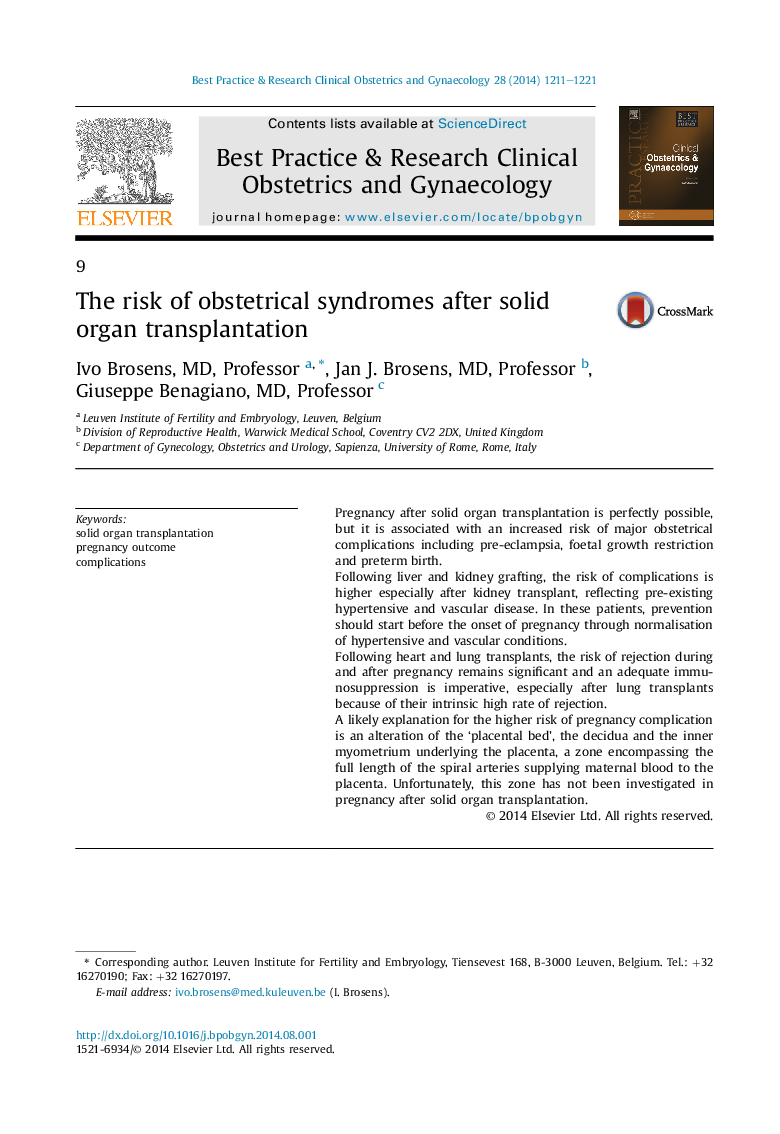| Article ID | Journal | Published Year | Pages | File Type |
|---|---|---|---|---|
| 3907226 | Best Practice & Research Clinical Obstetrics & Gynaecology | 2014 | 11 Pages |
Pregnancy after solid organ transplantation is perfectly possible, but it is associated with an increased risk of major obstetrical complications including pre-eclampsia, foetal growth restriction and preterm birth.Following liver and kidney grafting, the risk of complications is higher especially after kidney transplant, reflecting pre-existing hypertensive and vascular disease. In these patients, prevention should start before the onset of pregnancy through normalisation of hypertensive and vascular conditions.Following heart and lung transplants, the risk of rejection during and after pregnancy remains significant and an adequate immunosuppression is imperative, especially after lung transplants because of their intrinsic high rate of rejection.A likely explanation for the higher risk of pregnancy complication is an alteration of the ‘placental bed’, the decidua and the inner myometrium underlying the placenta, a zone encompassing the full length of the spiral arteries supplying maternal blood to the placenta. Unfortunately, this zone has not been investigated in pregnancy after solid organ transplantation.
